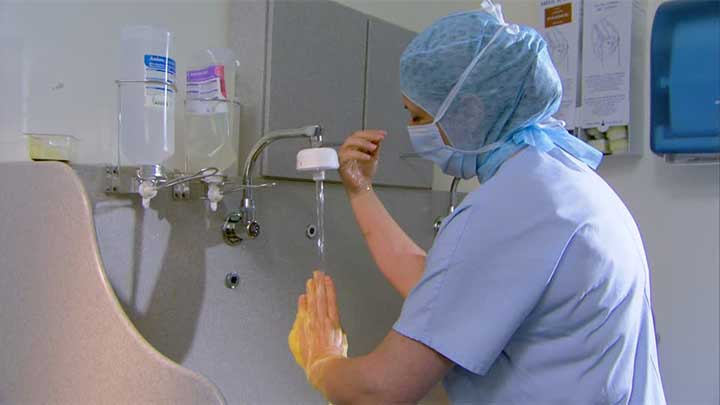Medicare to stop reimbursing hospitals for eight preventable conditions
Medicare will stop paying hospitals for the extra costs of treating eight conditions stemming from preventable errors—falls, pressure ulcers, catheter-associated urinary tract and vascular infections, air embolism, blood incompatibility, mediastinitis, and objects left in the patient’s body during surgery. Unless the patient had the condition on admission, Medicare won’t reimburse the cost of treating it and won’t allow the hospital to pass the cost on to the patient. Private insurers are considering adopting the new rule, which goes into effect October 1, 2008.
www.cms.hhs.gov/AcuteInpatientPPS/downloads/CMS-1533-FC.pdf
Using temporary nurses doesn’t jeopardize quality of care
Using temporary nurses doesn’t reduce quality of care for hospital patients, because the temporary nurses are just as qualified as, or more qualified than, the permanent nurses. In a study in the Journal of Nursing Administration, researchers used data from the 2000 National Sample Survey of Registered Nurses to compare the qualifications of temporary and permanent nurses and determine if nurse outcomes and adverse events varied with the proportion of temporary nurses a hospital uses.
www.jonajournal.com/pt/re/jona/abstract.00005110-20070700000005.htm;jsessionid=GM6XTczMH272Ch2zznWZW8HQ4MByDN9YLCBNXm5jDyJBpcdJJrQL!-362743511!181195628!8091!-1
New guidelines refine angina and myocardial infarction treatment
New guidelines from the American Heart Association and the American College of Cardiology call for a two-pronged approach to treating patients with angina or myocardial infarction caused by partially blocked arteries. The guidelines emphasize the importance of determining early risk and choosing appropriate risk-based treatment. Low-risk and stabilized patients should undergo stress tests and other heart function tests, whereas high-risk patients should receive early interventions, such as stent angioplasty when appropriate.
www.americanheart.org/presenter.jhtml?identifier=3049500
VA hospital dramatically reduces its MRSA rate
Using an aggressive campaign to wipe out methicillin-resistant Staphylococcus aureus (MRSA), a Veterans Affairs (VA) hospital has reduced MRSA infections to 17 cases from an average of 60 in previous years. The program includes adding personnel, screening all new patients for MRSA via nasal swabs, practicing meticulous hand hygiene, using disposable blood pressure cuffs, isolating MRSA carriers, and assigning a stethoscope to each room to prevent microbe transfer. The entire program costs about $500,000 while saving about $900,000 annually. Since March, the VA has been phasing in the program at all of its acute-care centers.
www.nytimes.com/2007/07/27/us/27infect.html?ex=1187928000&en=a73d31af3c320381&ei=5070


















